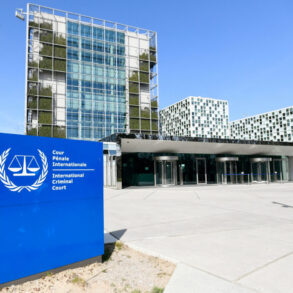The Office of the Prosecutor (OTP) of the International Criminal Court (ICC) launched a public consultation on its Draft Policy on Complementarity and Cooperation (‘Draft Policy’) on 6 October 2023. The Draft Policy contains four pillars which are meant to form the basis for deepening the OTP’s engagement with national authorities —creating a community of practice, technology as an accelerant, bringing justice closer to communities, and harnessing cooperation mechanisms. This post briefly examines the latter two given their relevance to the meaningful participation of victims of core international crimes at different stages of proceedings in the Hague, in national or regional jurisdictions. It argues that notwithstanding the limited information which may be captured in such policy document, it does not go far enough to reflect the importance of the principle of complementarity for achieving victim-oriented justice. Some recommendations are made as to how the Draft Policy can be improved in this regard.
The principles of complementarity and cooperation are crucial to the ICC’s achievement of its mandate of complementing the fight against impunity for core international crimes while working with states which retain the primary responsibility for addressing such crimes. The OTP plays a key role in applying the various provisions within the Core Legal Texts of the Court which are linked to the principle of complementarity, including admissibility provisions (Articles 17-20 of the Statute) and provisions covering preliminary examinations and investigations (Articles 15, 53-54). Interpreting the principle of complementarity will contribute to the determination of whether justice would be served within the context of the Rome Statute and by whom — states or the ICC? Where? —in the Hague, in national or regional jurisdictions? Can victims participate and how (if at all) can they contribute to shaping justice? Complementarity and cooperation have been the subject of academic literature of different kinds, including blog posts for example, here, here, here, here and here. Nonetheless, very little has been written about the impact of complementarity on how justice for victims may be pursued and realized. See for example, Moffett’s work on this.
The Draft Policy signals the OTP’s intention to remain committed to work with complementarity and cooperation stakeholders and partners, especially states, regional organizations, civil society organizations (CSOs) and victims, to deliver on the aims of the Rome Statute. The OTP aims to bring justice closer to victims through establishing a field presence, building closer relationships with affected communities, and developing deeper understanding of local contexts and cultures (Draft Policy, 62-86). However, the Draft Policy can be improved to ensure that it robustly reflects how crucial complementarity is for achieving victim-oriented justice. This is further considered under two headings. Firstly, the need for inclusivity in carrying out consultations with states regarding burden sharing, the provision of support by the OTP, and the conclusion of memorandum of understandings (MoUs). Secondly, the OTP’s plan to embed its work within mechanisms for addressing international crimes.
Consultations with States, Support for National or Regional Mechanisms Addressing International Crimes and the Conclusion of MoUs: The Need for Inclusivity
The Draft Policy provides explanations of the guiding principles which cover ways in which the OTP can operationalize its two-track approach of partnership and vigilance to ensure that while it consults and works with cooperating states, it will not compromise its ability to intervene should the situation warrant. In paragraph 16, the Draft Policy considers instances of a change of circumstance in a situation or case following an admissibility determination. It notes that where such warrants:
‘revision of that assessment, the Office will seek it on its own initiative. Where there is an opportunity to assist national authorities conducting relevant and genuine proceedings, the Office will proactively support it.’
What do these mean for victims? In what circumstances will the OTP reassess, what are examples of indicators which may warrant a revision of assessment? Can the absence of any type of victims’ participation in the respective process trigger or form part of a trigger for such revision? What if the OTP does not believe that a revision is necessary, what measures might it take to hold itself accountable, ensuring that its determination is in the interest of victims? These are justifiable questions seeing that the preamble to the Statute highlights the suffering of victims of international crimes and the need to tackle impunity for such crimes. Paras 12-13 of the Draft Policy rightly recognize the importance of the preamble as an essential part of the Statute which contains considerations that are critical to the OTP’s vision set out in the Draft Policy. The core legal texts of the Court, and various ICC policies and strategies recognize victims as actors with rights within international criminal justice system, and are thus, integral to the fight against impunity. Rule 86 of the ICC’s Rules of Procedure and Evidence mandates inter alia the OTP in performing its functions under the Statute or the Rules, to take into account the needs of all victims in accordance with Article 68. Therefore, the OTP should consider and regard as important, the inclusion of victims and the manner in which their needs and interests are addressed, as part of the factors to be examined in determining whether a revision of assessment of a situation or case at any stage of proceeding is warranted.
Paragraphs 14 and 15 of the Draft Policy anticipate situations where there is concurrent action by the ICC and States Parties in respect of possibly interconnected cases, necessitating consultation and coordination. Paragraphs 122-123 outline the OTP’s willingness to explore burden sharing in situations, which is a good approach because it potentially widens accountability efforts and increases the avenues for delivering justice to more victims. However, the way such measures are implemented should factor in victims’ needs and interests through ongoing consultations with them, while adapting to changing circumstances. The recent litigations under Article 18, in particular the Afghanistan, Philippines and Venezuela deferral requests and subsequent decisions of the Pre Trial and Appeals chambers, highlight the need to ensure that consultations and MoUs aimed at maximizing complementarity and cooperation should adopt such an approach. Especially since the Draft Policy states that the OTP ‘above all places the rights and experiences of victims/survivors at its centre’? (Draft Policy, para 123). The Draft Policy provides examples of the different MoUs between the OTP and States such as Venezuela, Colombia, and Guinea. For instance, para 107 states that the OTP could help Venezuela with legislative developments in the field of justice and sharing of knowledge and best practices with national authorities. Will such support include development of effective victims’ provisions and a means to monitor their implementation? Doing so can contribute to a more victim-friendly legal framework and system.
Embedding the ICC’s Work Within the Full Range of Mechanisms for Addressing International Crimes and The Establishment of a Cooperation and Complementarity Forum
Paras 23-35 of the Draft Policy outline the importance of embedding the ICC’s work to enhance its impact. Para 102 explains that the OTP is not prevented from seeking means to integrate and coordinate its efforts along pathways that reinforce a comprehensive approach to transitional justice to provide remedies to victims. The Draft Policy states that a Complementarity and Cooperation Forum will be established and is expected to become operational in early 2024. It is expected to be a platform for sharing expertise and discussing and developing common standards for the investigation and prosecution of core international crimes. Legal practitioners, investigators, criminal analysts, forensic specialists, financial investigators, country specialists, linguists, knowledge base managers, operational and protection strategies experts, as well as judicial cooperation specialists are expected to have a place in this forum (Draft Policy, paras 33-35). As of 15 April 2024, there is no public information about the existence of such a forum.
The Draft Policy does not expressly mention victims’ representatives as among those to participate in the forum. It is hoped that such a forum would have room for them for reasons of inclusivity discussed above. Currently the OTP’s Jurisdiction Complementarity and Cooperation Division (JCCD) does not have a dedicated official with the responsibility of focuing on victims’ needs and interests with respect to complementarity issues throughout all stages of proceedings. Such a person can better liaise with the OPCV, and VPRS to facilitate consultation with victims and affected communities with regards to the making of important complementarity and cooperation decisions, and to ensure that at the right intervals victims receive important updates relating to their submissions to the Court. While noting the introduction of the thematic roundtables to improve engagement with CSOs, the OTP should consider creating the role of a civil society liaison (not just a cooperation expert) within its JCCD.
The OTP’s Draft Policy is a welcome development, but more should be done to reflect the importance of complementarity for realizing justice for victims. The proposals made here can contribute to improved transparency which is crucial to the OTP’s aims of bringing justice closer to victims and creating a community of practice.






